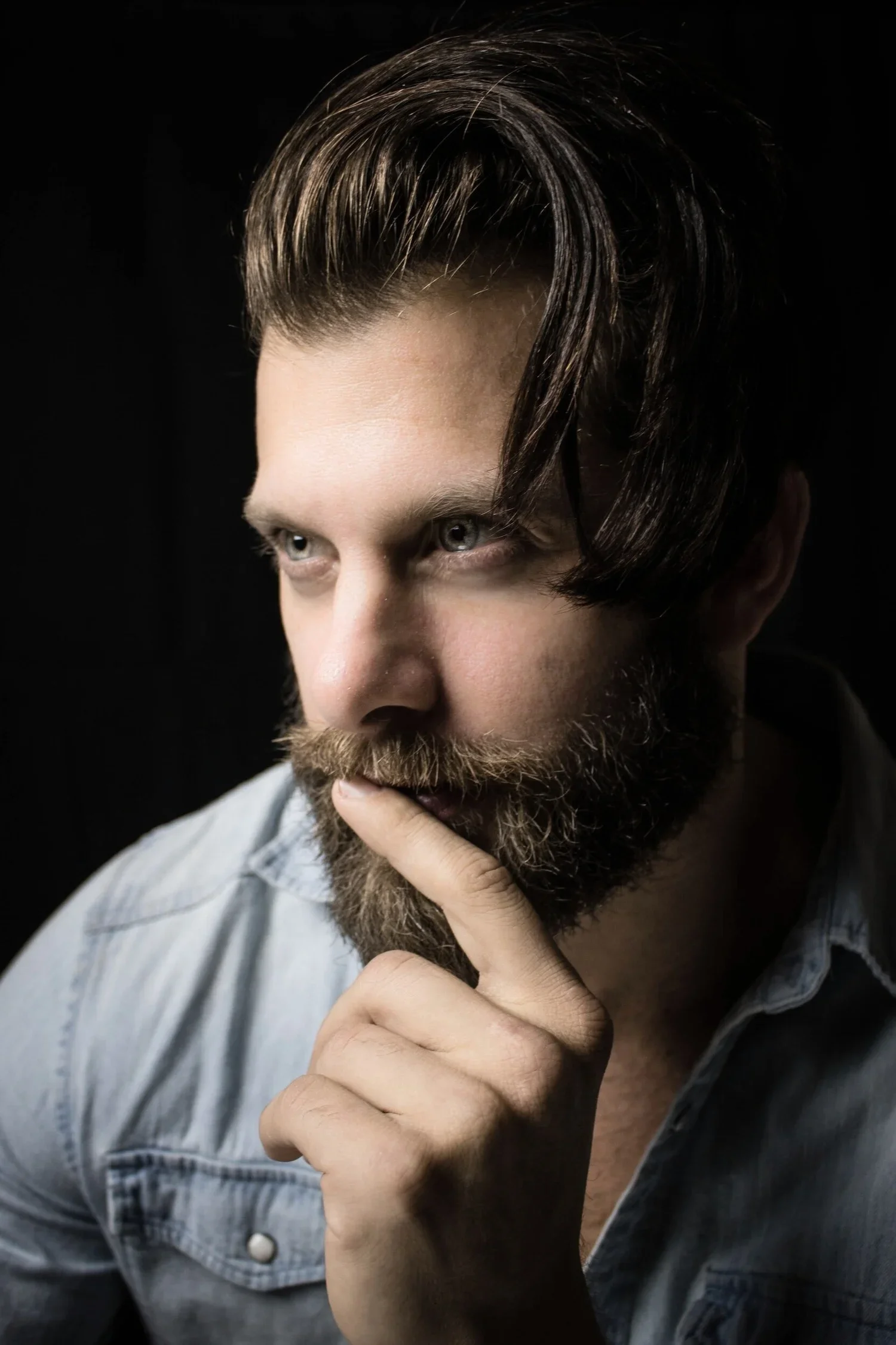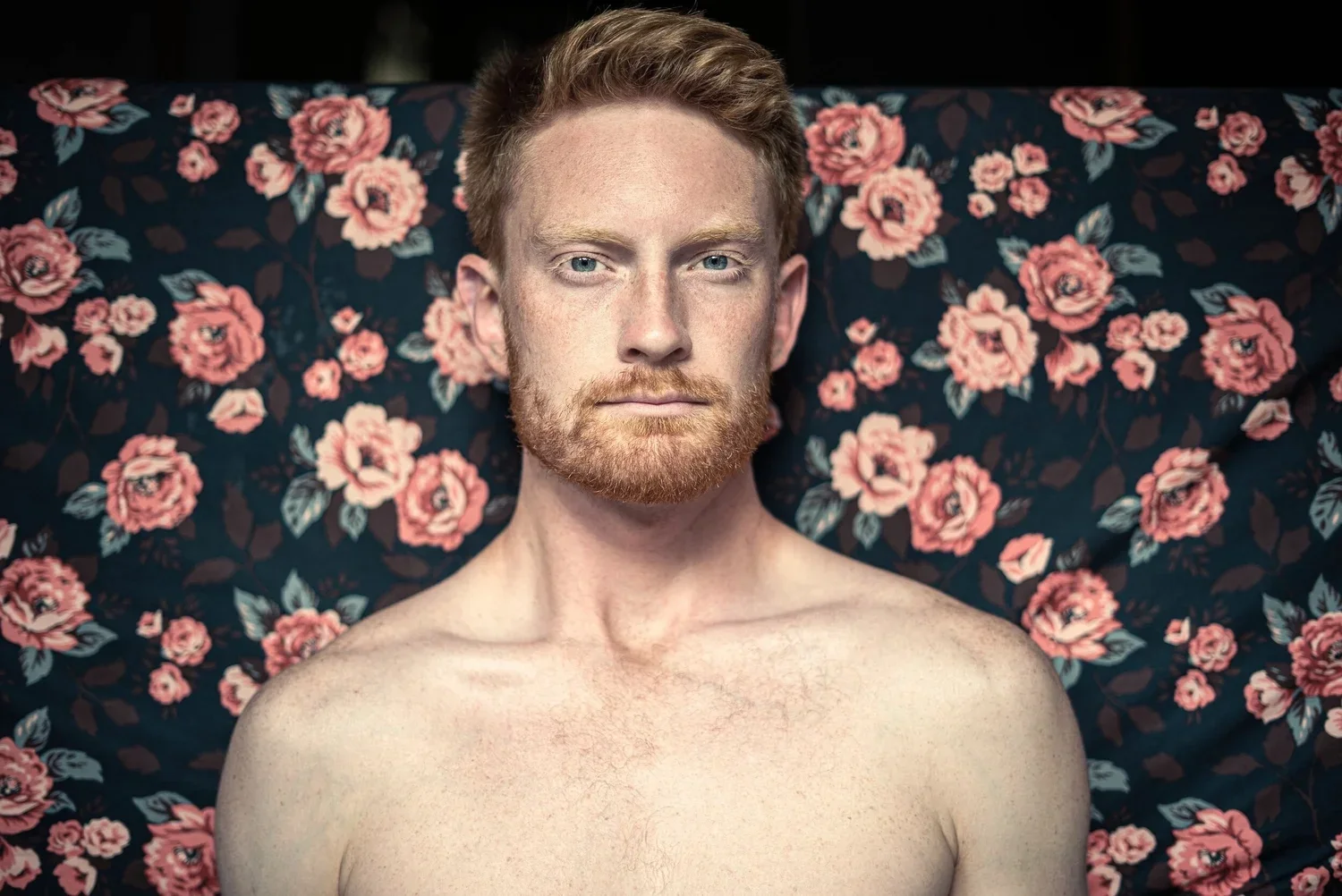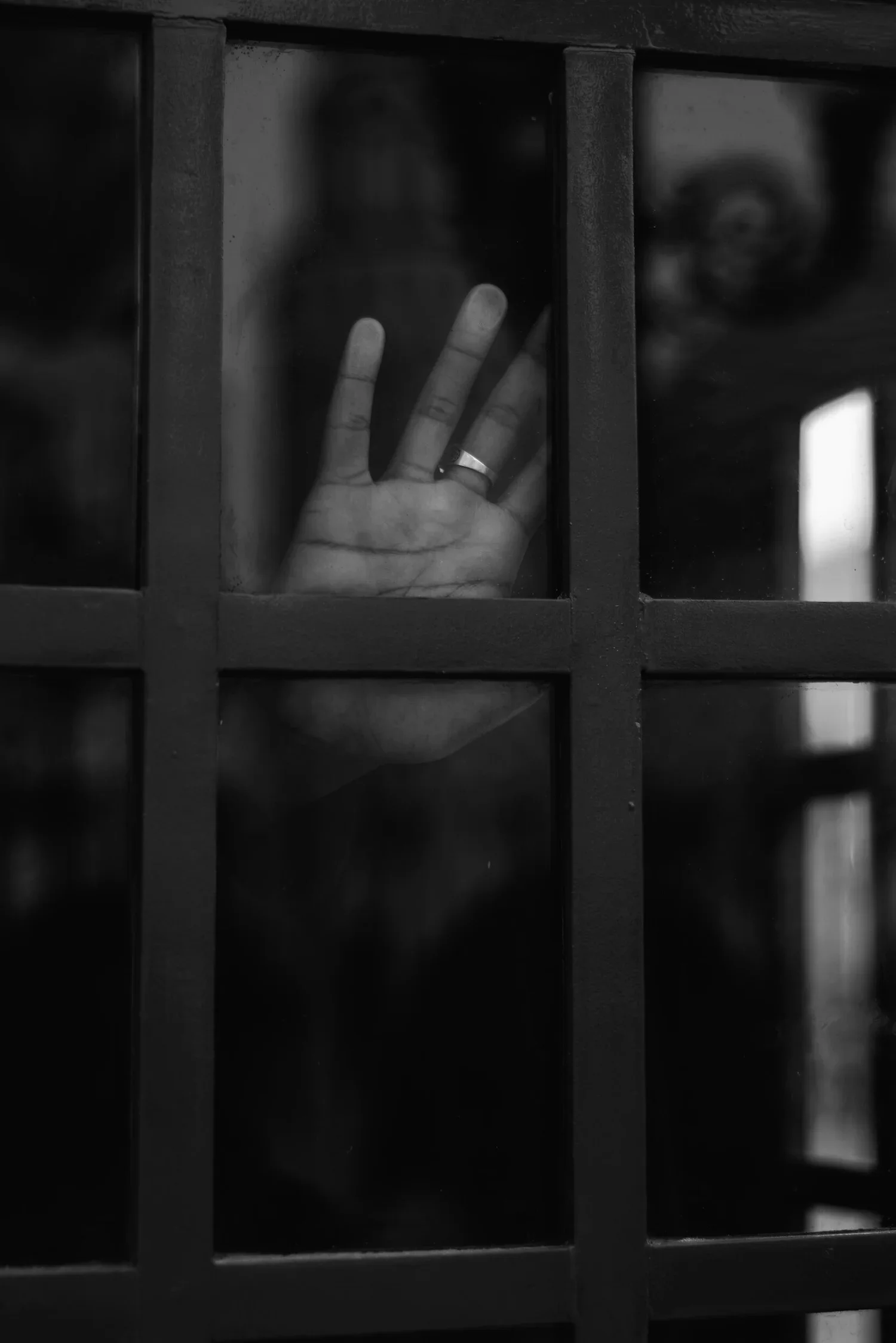A Chilling Friendship
Now that she’s dead, I can write about her without fear of lawsuits or reprisals. We were best friends, almost sisters, until we weren’t. Jealousy overtook her, and as a result she intentionally and maliciously tried to sabotage my career. Revenge is a dish best served cold, they say. But my revenge was hot hot hot.
Originally published in ten parts on nicolejeffords.com in September 2023
Part I
Now that she’s dead, I can write about her without fear of lawsuits or reprisals. She was my best friend who became my worst enemy. Her name was Caroline Adler, and just thinking about her makes my stomach grow cold.
We met when we were in our junior year of high school, both of us misfits among our peers — she, because she was highly intellectual and had a weirdly monotonous voice that made it difficult to follow what she was saying; me, because I’d been in a near-fatal car crash the year before and had a still-raw scar that cupped my right cheek. (I was weird for other reasons, too, a daydreamer who couldn’t do math to save myself and constantly doodled faces in the margins of my notebooks.) We both loved classical music, perhaps the one thing that drew us together, because I was submissively quiet and let Caroline’s words wash over me while she did all the talking.
The bond we formed in high school continued over the years, taking us through various relationships and marriages, the birth of children, the attempts at a number of different professions. All this is to say, we were fast friends, almost sisters, until we weren’t.
The troubles between us began when I left an eight-year marriage and moved back to the States from London. Even from the first moment, it was understood that I should live in Cambridge, Massachusetts where Caroline lived, and not in New York City where we’d both grown up and where my parents had a brownstone in Gramercy Park with ample room for a returning daughter whose life had fallen apart. Caroline welcomed the move. In fact, for the first few weeks, while I was getting on my feet, I stayed with her in the apartment she shared with her boyfriend, Ronnie Goldman, a mustachioed young man who claimed he was writing a novel and whose very thin red lips reminded me of a vagina.
I was pretty innocent back then, despite the fact that I’d weathered a marriage to a man old enough to be my father and was now on my own with a two-year-old child, an adorable, dark-eyed little girl named Sophie. I had no idea what I looked like or what sort of effect I had on other people. My husband had been very controlling and I was used to doing exactly what he told me, although I was also a drunk, which meant I was exquisitely sneaky and underhanded, quite capable of slinking around and leading a double life no one, not even my closest friends, knew about.
Part II
Ronnie
Caroline’s boyfriend, Ronnie, was extremely flirtatious. He was one of those men who was good at one-liners and tried to be funny all the time. From the beginning, I didn’t like him. He pretended to have a “thing” for me, and whenever I passed close to where he was sitting or standing, would feign an attraction so intense that he would practically swoon with fake desire. “Ohhh, don’t come too near,” he’d groan in a mocking voice. “I won’t be able to keep my hands off you.” Those vagina-shaped lips would form a sneer, letting me know that his so-called desire for me was pretend (or was it?) and that the last thing he wanted to do was touch me.
How must this have affected Caroline? She would act as if she didn’t notice, or as if Ronnie were a child who needed humoring for excessive silliness. His behavior didn’t seem to impact our friendship … at least, not then.
At the time, I was the needy one, a young woman grieving a broken marriage who was on her own, with a dependent child, in an unfamiliar environment. As such, I posed zero threat to Caroline.
To the contrary, she went out of her way to assist me, showing me around Cambridge, helping me find a place to live, even introducing me to a therapist she insisted would be good for me. Our friendship was solid; we were glad to once again live in the same town.
At this point in her life, Caroline worked in the education department at Harvard. She was a tall, big-boned woman with straight, flat, corn-colored hair and a face that was wide and plain and extremely intelligent. She dressed in dowdy clothes, perhaps in keeping with her job, but her overall appearance was impressive and wherever she went people seemed to look at her, this quietly moving, professorial woman, with a kind of awe. I felt awe for her, too. When I pointed out that the therapy group she insisted I join met at an awkward time (5:30 Monday, Wednesday and Friday, just when I needed to be home feeding dinner to my daughter), she snapped: “No, no, no! You’re going through a divorce! You have to make sure you’re in good mental health in order to be the best mother you can to Sophie. This therapist is perfect.”
I’m sure she meant that sincerely. But the therapist was in Newton (along with most local therapists), a half hour drive in traffic. I had to hire a babysitter to pick Sophie up from daycare and feed her dinner. I would spend the hour in therapy – a group of eight or so people, most of them highly educated and in various stages of divorce – silent and frazzled, constantly worried about being absent for one of the most important times of my daughter’s day.
Part III
In the years before the break-up of my marriage, while I was still living in London, Caroline had often spoken to me about her good friend, Ray Davis, an architect whom she adored and would have had a romantic relationship with if he hadn’t been gay. Whenever we saw one another or spoke on the phone, she sang Ray’s praises – how great he was, how she would have lived with him the rest of her life if he’d had any interest in women. Her voice, as she rhapsodized about this person, was such a monotone that I didn’t really take in what she said and formed no mental image of the man she was describing. For me, Ray was a cipher and when I finally met him, it was a shock.
First, there was the way he looked. Caroline’s parents had a country house at the end of Long Island, near the Hamptons. It was a place I loved, tucked away in farm country, a stone’s throw from the ocean. On my first weekend back from England I went out there in a state of utter confusion due to my abrupt decision to leave a longish marriage. I was in a fog, everything unreal and hazy, underlaid with a dark current of grief. My first glimpse of Ray caused me to freeze in my tracks. He was extremely good-looking, an energetic young man in his early thirties with arrestingly blue eyes the color of cornflowers and bright red wavy hair closer to flame than fire engine in shade. There was nothing effeminate about him, and if Caroline hadn’t told me I wouldn’t have known he was gay. Instead, he exuded a kind of vigor and purposefulness I associated with cis-gendered males – the guy you would call to check out a stalled car or inspect the premises if you thought someone had broken in. I think my mouth must’ve dropped open in surprise as we were introduced.
I stared at him and he stared at me, an almost palpable sizzle of electricity running back and forth between us as we stood in Caroline’s mother’s kitchen, warm yellow sunshine pouring over the room..
I don’t think Caroline noticed. I myself didn’t understand what was going on. All I knew was that this man radiated an exuberance and power that was a little overwhelming. “What are you going to do for work if you move to Cambridge?” he asked me.
I had no idea. I was a writer early in her career who’d published a few poems and a story or two in obscure literary journals. As for work, I’d helped my art photographer husband with book proposals and synopses, but that was about it. I was very green.
“Well,” said Ray Davis, looking me up and down. I noticed a mischievous glint in his lively blue eyes. “I think I have a job for you.”
Part IV
The job Ray offered was so far out of my realm of experience that I nearly laughed in his face. For a puny two-hundred-and-fifty dollars a week, he wanted me to travel around Massachusetts, teaching writing and poetry to inmates of all stripes in high security prisons.
I’d been out of the country for eight years, totally out of touch (if I ever had been) with the sort of population – murderers, felons, conmen – locked behind bars. But I wanted to please Ray, and so I instantly agreed to take the job. And with that began a period of dislocation and malaise that colored every action I undertook. I was miserable. I was drinking too much. I was racing around like a frenetic chicken and my body was slowly going downhill.
Meanwhile, Caroline wasn’t entirely thrilled with my new occupation. I knew to wear shapeless clothes and to look as drab as possible every time I crept through those prison gates. Hair pulled back in a tight ponytail, face swept clean of makeup. Inside my mind, I was scared as hell. Just put one foot in front of the other, I thought, not knowing what else to do. I considered myself a fraud, winging it with every class I taught. Not that the prisoners cared. They were just happy for an opportunity to get out of their cells, even if it meant writing a lot of drivel that I would take home and mark up as if the pages were examples of serious literature. “You aren’t earning nearly enough money in that job,” Caroline would say. “You ought to at least be with a company that offers health insurance.”
In the beginning, I didn’t understand that this was a ploy to get me away from Ray, with whom, out of necessity, I was spending a good deal of time. Looking back, I don’t blame Caroline for being concerned about the nature of my relationship with him.
She wanted Ray for herself, and there I was, hogging all his attention, minding his dog, driving around in his jeep. And the deal was, she was right: despite our sexual preferences, there was something romantic between me and Ray.
Meanwhile I had found a place to live in a rambling three-story house that I shared with two other single moms and their kids. Since I was the last person to sign on, I was given the least desirable room, a dark little space with a desk, bunkbed and ratty carpet. On the day before I moved in, Ray announced that he wanted to come over and inspect the premises to make sure everything was up to speed.
Part V
No one was in the house that day. Sophie was with her babysitter and I was with Ray, who said: “Let’s go over and see your new place.”
I was only too happy to oblige. I had moved some things in, although I hadn’t slept there yet. The room, which was on the ground floor, right off the kitchen, was tiny and dreary. Ray looked around, unimpressed. “I think we should try the bed,” he said, climbing onto the top bunk. With a flick of his hand, he indicated I should join him, and so, all too happily, I kicked off my shoes and clambered up. To my astonishment, this staunchly gay man threw his arms around me and drew me close, giving me a warm French kiss and pressing his body firmly against mine. He was wearing a short-sleeved checkered shirt and khakis, but I don’t remember any clothes coming off, just a quick unzip of Ray’s fly and a moment of awkwardness and confusion as my pants were pulled down. What happened next, I can’t really say: a swift schtup? A moment of penetration too clumsy and brief to count for actual sex? I was unaware of the sensation of his penis going into me and I certainly didn’t realize that he had ejaculated.
As far as I could tell, nothing of great consequence had transpired, just a bit of fumbling around that neither of us would ever dare mention to the other afterwards. For sure we didn’t tell Caroline or her boyfriend, Ronnie, what had happened.
But from the time of our little encounter onwards, Ray and I treated each other with the sort of constantly changing adversarial behavior of warring lovers – snide remarks, private references, secret comments, nasty in-jokes mixed up with moments of affection and a policy of always taking one another’s side. If it was confusing to the people around us, it was definitely confounding to me.
But I continued going to therapy, driving all over the state to visit prisons, stressing over pick-up times and babysitters for my daughter, grading student papers, planning dinners and outings with Caroline, trying to dream up ways to hang around with Ray. That was my life – guilt for leaving my marriage, embarrassment over the feelings I had for Ray, And then, to make matters even more complicated and difficult, I discovered I was pregnant.
Part VI
Well, it wasn’t that I was pregnant. It was that I had been pregnant. Three months had passed without me having a period, but I paid no mind to that since, as far as I could tell, Ray hadn’t ejaculated, and since I was in such poor physical health, it wouldn’t be surprising to miss a period. One Sunday, however, I began hearing a voice in my head that repeated over and over, You’re in danger, you’re in danger. It wasn’t unusual for me to hear warning voices, but I decided to ignore this one – what, after all, could I do about it?
The next day I began bleeding. Heavily. I was due to work at Sophie’s daycare center (which was communal), but by the time I got there, I was going through a Tampon every three minutes. One of the other mothers looked at me and said, “What’s the matter? You look awful!”
I told her about my heavy period and she said, “Maybe you’re having a miscarriage?”
That was when the penny dropped.
Someone else recommended a gynecologist, and I put on a Pamper and drove straight there. The gynecologist, a man, sent me home with a prescription for drugs and told me to stay on bedrest for the next three or four days. Of course, the first thing I did after seeing him was tell Ray, who was kind enough to come over and take care of me. (He was furious that I’d gotten rundown enough to have a miscarriage – he would have insisted on keeping the baby.) Ray, bless his heart, told Caroline, who all along had been oblivious to the nature of our relationship. And, although she tried hard to hide it, Caroline was not happy.
If any one female should have a romantic connection to Ray, it should be her, Caroline, who’d waited all these years.
But instead it was me, a newcomer, who was also Caroline’s best friend. And Caroline, as I knew, formidable in her role as educator, didn’t take well to adversity. (Once, when our mutual group therapist told her she wasn’t as smart as she thought she was, she got up and slapped him in the face.) It was then that Caroline’s attitude toward me began to change.
Part VII
When Caroline looked at me now, it wasn’t with the kindness and concern of a good friend, but rather with increasing coolness, even dislike. She didn’t ask me a single question about my relationship to Ray. In fact, that was the first sign of her growing displeasure – not talking about him at all. We began seeing each other less. The dinners and get-togethers of the past, stopped. So did the phone calls and conversation. From Caroline’s end, there was a cold, eerie silence that didn’t bode well.
At the time, I was back in school, taking a graduate seminar in creative writing with the late Stanley Elkin, a well-known author who’d written a ton of books and suffered from multiple sclerosis. Stanley and I became quite good friends (I was the one who scored weed for him, which he claimed was beneficial to his health).There were only five of us in the class and I had the misfortune of being his favorite – at one point he threw a pen at a student who’d made a foolish remark, and then pointed at me, saying, “She’s the only one who can write in here!” Gratifying as that was, it caused me to squirm with embarrassment.
I had shown Stanley a manuscript of mine that he thought was good enough to submit to a publisher. In fact, he set up a date for me to meet with an editor in Boston, a consultation he himself would attend. The meeting was to take place late on a Thursday afternoon. Caroline, who knew about the meeting, invited me to lunch that day. She was a good cook, and as she whipped up an omelet, she poured out two glasses of wine, gesturing for me to sit down and relax.
Well, once I’d had even a sip of alcohol, I had to have another and another until I became completely inebriated, and began to slur my words. Somewhere in there, Caroline (who was aware of my problem with alcohol) lit up a joint and between the booze and the marijuana, I turned into a zombie.
As the time for my meeting grew closer, she offered to drive me there. By then, I was kind of babbling – not that that made much difference to me; I was too far gone to know what I was saying. What actually went on in that meeting I will never know. Caroline waited outside in the car while I made a total fool of myself, talking gibberish and spewing all sorts of nonsense. A very embarrassed Stanley had to walk me back to the car. “See that she makes it home,” he said, with a disgusted look on his face. It was the last time I ever saw him.
Part VIII
The manuscript in question was eventually published, but it took several years for that to happen. I never said anything to Caroline about the botched interview, figuring it was my own damn fault for getting drunk. But in time, I realized that Caroline’s behavior had been intentional, and that she had wanted me to screw up.
After that, we drifted apart. I rarely saw Caroline anymore, and my relationship to Ray, who moved to another city, ended. I myself moved on, marrying a second time, having more children, producing more manuscripts. Eventually, I became known as an author, which meant I went on book tours and traveled all over the country giving talks and lectures. By then, I was sober and the drunken girl of the past had receded into the shadows. When I thought of Caroline now, it was with a kind of loathing; she had done me wrong, had become an enemy – someone to watch out for and avoid.
Years passed, and when I was in my fifties I was invited to teach for a semester as a guest lecturer in the Creative Writing and Literature program at Harvard. Caroline, by then, had been appointed Dean of the Graduate School of Education.
We hadn’t seen one another in decades and now we were suddenly thrown together – two women who had reached the pinnacle of their careers and didn’t have time for bullshit.
When, finally, we were face to face again, we said hello frostily – or, at least, I did; Caroline was all smiles. She had aged considerably, creases around her eyes and mouth, yellow blond hair now the color of ginger ale. But with her erect posture and presumptive air of authority, she was still intimidating. Instinctively, I didn’t want to be around her.
But I had no choice. “Well, it’s been a long time,” she said, reaching out to clasp my hand. It gratified me that her teeth were a little yellow.
“Sure has,” I said, slipping my hand out of hers almost immediately. I had no plan to be chummy with her again.
“Congratulations on your success,” she said in a voice that meant otherwise. “I’ve read your work and it’s wonderful.”
From the coolness in her eyes, I could tell that she didn’t think there was anything wonderful about me or my work. Her gaze remained steady. if she could have stabbed me with a fork then and there, she would have.
Part IX
“We need to meet and go to lunch,” Caroline said, with a big fake smile on her face.
“We’ve already burned that bridge,” I said. I could taste her meanness of decades before in my mouth. Caroline, I knew, was a sucker for buddying up to people who had high profiles in the public domain. I wasn’t going to give her that pleasure.
“Well, that was a long time ago,” Caroline said. “We have a lot to catch up on.”
I didn’t answer. Instead I put on my coat and headed for the door. Caroline’s face fell for a moment; but then she regained control and her expression became placid. “See ya,” she said.
I merely shrugged and kept going.
Walking across campus, I was surprised when a woman my age approached and said, “You’re a friend of Caroline Adler’s, aren’t you?” She had unruly brown hair pinned to the top of her head with a tortoise shell clasp, but she was well-dressed – expensive boots, gray flannel trousers, a dark red woolen coat.
“Well, I wouldn’t say ‘friend’, exactly.”
“I work in the same department as Caroline.”
“And?”
“And it’s hard to get along with her.”
I turned to look more closely at the woman. “For everyone or just for you?”
“For everyone. It’s like she’s always about to stick a dagger in your back. Most people are scared of her.”
“She has that much power?”
“Oh yes.”
The woman told me her name – Eloise Hahn – and said she was a lecturer in the English department. I thought for a moment, studying her face. Then I said, “Let’s go for coffee. I have a story that might interest you.”
Eloise, who I later learned was married to a big deal lawyer, was all ears. Over coffee, I told her how Caroline had tried to screw me many years before. Her eyes grew wide as she listened, but she wasn’t surprised. “What a fucking bitch,” she said, and from the way she enunciated the words, I knew the story would travel.
All I had to do was wait.
Part X
The college couldn’t fire Caroline – she’d been there too many years, was too important – but they sure as hell could make her life uncomfortable. I can only guess what happened. The story of her impropriety would have traveled. She would have been questioned, perhaps even put on leave. People would have grown to dislike her more and more. Rumors would have flown like a flock of swiftly migrating birds and she would have had to suffer the consequences.
All of this gave me pleasure. Revenge is a dish best served cold, but for Caroline the dish was hot hot hot. I wasn’t around to learn what happened to her. During the term I was a guest lecturer our paths rarely crossed, and afterwards the busyness of life took over. Not that I forgot about Caroline. I would think back to when we were high school besties – our silly pranks and high minded discussions, our hours of lolling on her bed or mine, gossiping about fellow students, movie stars, Nobel Prize winners – and wonder what had happened. The girl I had known was nothing like the sour and power-hungry woman she turned into. Did her decline from fun-loving and adventurous to mean and bitchy start with the fawning boyfriend, Ronnie Goldman? Had it been her failure to achieve a physical relationship with gay Ray Davis, whose affection she’d craved so badly? Or had it been something further in her past, a dissonance that had occurred in college or shortly afterwards?
Whatever it was, despite myself, I didn’t wish her well. I’d had the satisfaction of effortlessly spreading a mean (but true) story about her and that should have been the end of it. But over the years, I found myself keeping an eye on Caroline’s progress.
She married, she had children, she wrote articles, she acquired a country house (I saw pictures in a glossy magazine), she received an award for a mode of teaching she engineered. All this news was positive, but I had my own bitchy side and badly wanted her to suffer results for her mean behavior. (Not that I was active in this desire; it was more like an annoying melody that kept repeating in my ear.) Some time passed without my distantly tracking her. And then one day I googled Caroline and saw a photo of her in a turban with the news that she’d passed away. Was I sad or gratified? Neither, really. Perhaps I felt a little smug about outliving her, but frankly it was simply information about a person I’d known long ago who was no longer in my life and no longer mattered. I didn’t really care anymore.




















